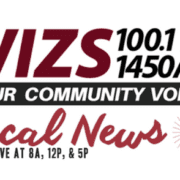SportsTalk: NCHSAA Releases First Realignment Draft
SportsTalk on WIZS 12:30 p.m. M-Th
The North Carolina High School Athletic Association has released their First Draft of Conference Realignment which will take effect at the beginning of the 2025-26 School Year. This realignment will determine what schools play who in conference play. Scout Hughes and Doc Ayscue talked all about it on Wednesday’s edition of SportsTalk.
In addition to conference realignment, the NCHSAA will be adding classifications, from 1A-4A, to 1A-8A. Based on the attendance numbers that came out in November, Vance County will be 6A, Henderson Collegiate will be 2A, and Vance Charter will be 1A.
The following are conferences that include teams from Vance County and the surrounding areas that the NCHSAA laid out in their first draft:
6A/7A Conference C
- Vance County (6A)
- Franklinton (6A)
- Northern Durham (6A)
- Southern Durham (7A)
- Hillside (7A)
- Riverside (7A)
5A Conference 1
- J.F. Webb (5A)
- South Granville (5A)
- Orange (5A)
- Cedar Ridge (5A)
- Seaforth (5A)
- Durham School of the Arts (5A)
3A/4A Conference A
- Louisburg (3A)
- Wake Prep (3A)
- North Carolina School of Science and Math – Durham (3A)
- Bunn (4A)
- Nash Central (4A)
- Roanoke Rapids (4A)
1A/2A Conference D
- Vance Charter (1A)
- Oxford Prep (1A)
- Wilson Prep (1A)
- Sallie B. Howard (1A)
- Henderson Collegiate (2A)
- Warren County (2A)
- Franklin Academy (2A)
- East Wake Academy (2A)
1A Conference 3
- Falls Lake Academy (1A)
- Clover Garden (1A)
- Discovery Charter (1A)
- Excelsior Classical (1A)
- River Mill Academy (1A)
- Woods Charter (1A)
These conferences are not set in stone as this is just the first draft that the Realignment Committee of the NCHSAA has come up with. The final draft will come out sometime in the spring. But these conference could give a good idea of what the conference could be when they are finalized. In the meantime, we at WIZS will keep you posted on all things conference realignment in North Carolina High School Athletics.
Click Play!









